Nicotine Dependence

Smoking is an addiction: The science of nicotine dependence
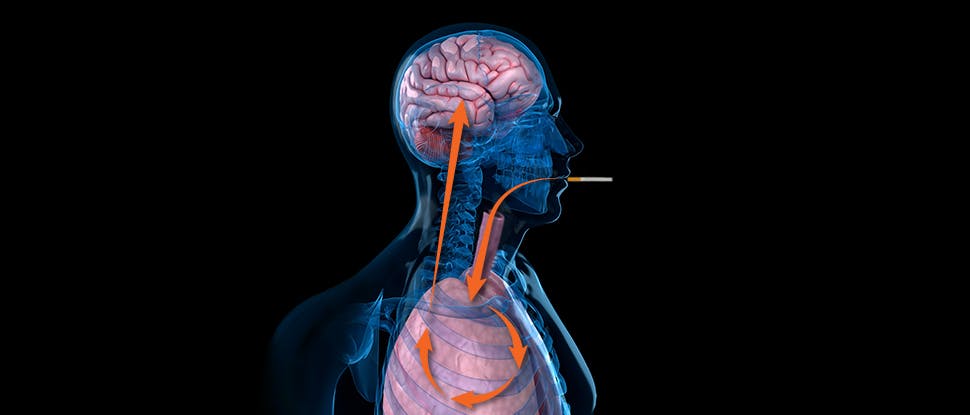
Nicotene delivered by cigarettes creates dependence
Nicotine reaches the brain within 11 seconds, binding to nicotinic receptors and momentarily satisfying the urge to smoke.1-3
Long-term effects of smoking include an increased number of nicotinic receptors, leading to an increased need for nicotine.4,5
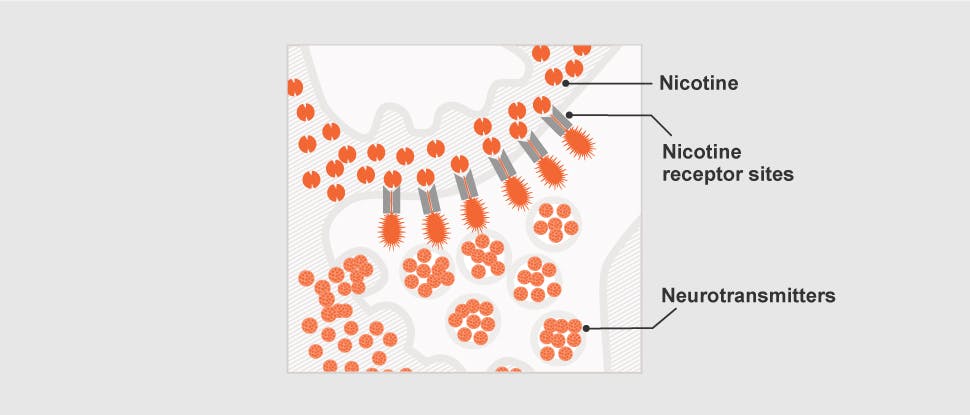
Nicotine from smoking cigarettes increases the number of receptor sites in the brain4,5
Nicotine can activate neurotransmitters or chemicals in the body that can influence behavior and mood.1
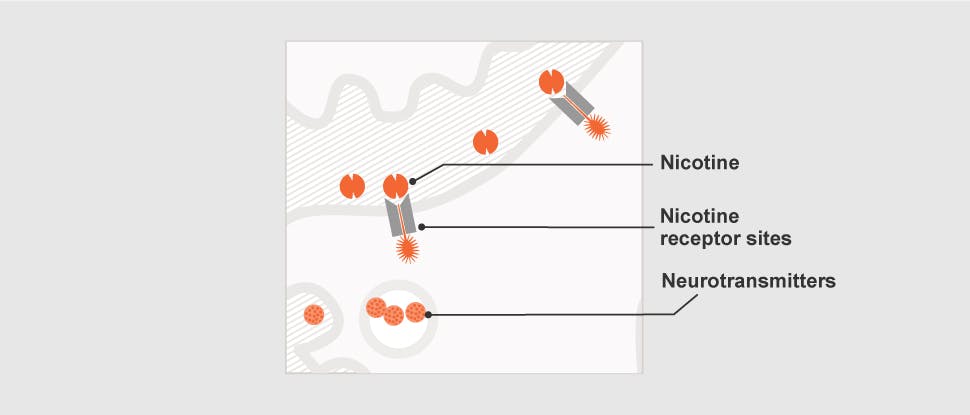
Smoking cessation helps reduce the number of nicotinic receptors in the brain4
In one post-mortem study, 9 smokers who had quit for at least 2 months had similar nicotinic receptor levels as nonsmokers.4
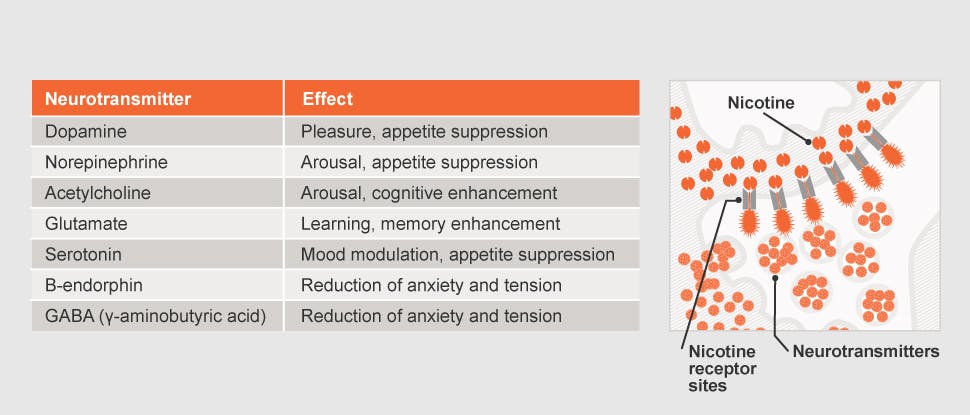
The chemical dependence makes quitting difficult
When nicotine reaches the brain, it binds to nicotinic receptors which release neurotransmitters, like dopamine. Dopamine release is critical to reinforcing effects of nicotine, as it signals a pleasurable experience.1
Difficulty in quitting for patients
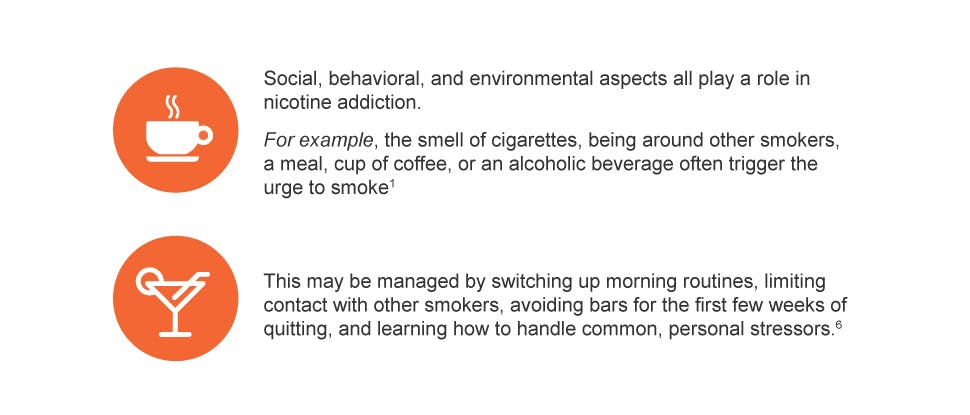
Smoking cessation can be difficult for reasons that go beyond physical dependence
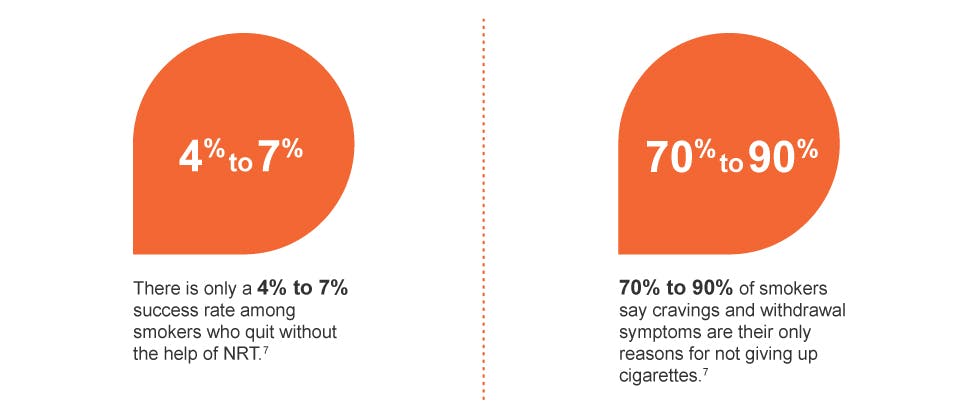
Quitters typically relapse within the first 3 months of quitting.7





